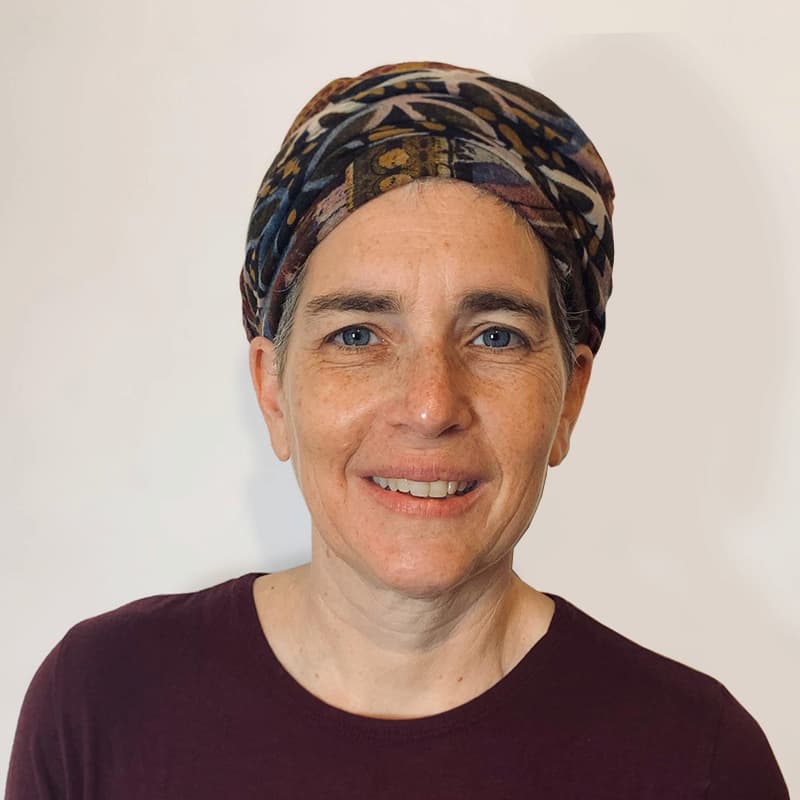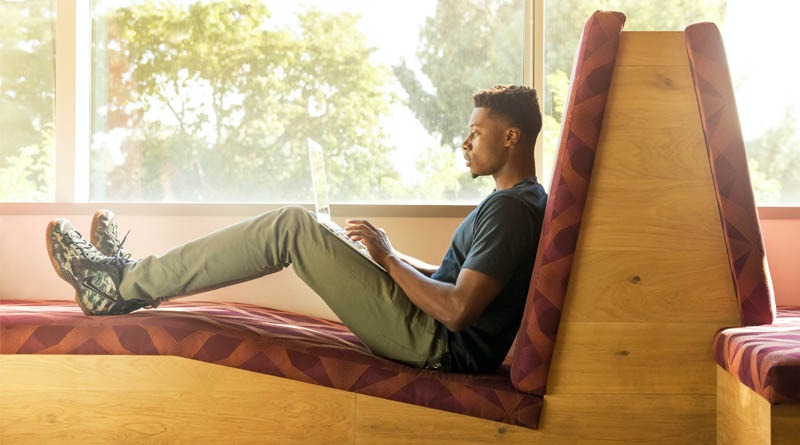
The Gift of Neurodiversity
B”H
By Jacki Edry
The Gift of Neurodiversity
During the last few years, and rightly so, there has been far more recognition and appreciation of neurodiversity in society. Many corporations have come to realize that neurodiversity is something to be understood and celebrated and that people with different minds can contribute incredible things to the world.
I believe that every person is blessed with a divine spirit and has a unique task to fulfill in the world. Children begin to discover their unique talents and natural calling as they grow and develop if they are given the opportunity and guidance they need.
Unfortunately, today’s educational system does not focus on helping children discover or develop their particular abilities and talents, due to uniform requirements, standardized curriculums, and teaching to the test. Sadly, this has bred is a lot of mediocrity in academics and led to immense frustration on the part of students.
Perhaps the average student can somehow manage to succeed within the system. However, children who are different thinkers or learners are often unable to thrive in a typical school environment. Many times, they will experience difficulty focusing or staying on task. They are sent for evaluations, which often lead to diagnoses and medical interventions.
I understand why the educational and medical systems feel the need to diagnose children. It provides them with a common language and enables them to allocate funding for accommodations and services. Despite this, I believe there is also a downside to diagnoses and categorization. There are many instances where it appears that the “system” finds pathology in traits that can actually be beneficial, simply because the child doesn’t learn or think in a typical manner.
ADHD in the classroom- a personal tale
When our daughter was in third grade, my husband and I were summoned to the school. The educational team requested that we seek “treatment” (the code word for Ritalin in Israel) for her, because, as they said, “she had the sharpest pencil in class”. She would get up and walk across the room to sharpen her pencil every five minutes. She would also find every excuse to avoid filling in her workbooks and was caught daydreaming on an ongoing basis.
We were completely unsurprised by their “unofficial” diagnosis of ADHD. The teachers had observed her inability to sit still or concentrate, but they hadn’t picked up on the fact that she had a photographic memory, was bored out of her wits, and thought very quickly- both associatively and logically. So, in short, if the teacher was discussing a subject, it might remind her of another subject, and within seconds she would find herself wondering about all kinds of things that were completely off-subject in the teacher’s eyes. In addition, she did not see any reason to fill in workbooks when she had already memorized everything at a glance- so she would move around or daydream.
The school advocated for medication to control her attention issues, and saw them as something negative. We, however, saw the benefits of her neurodivergence and sought out alternative solutions to help her stay on task. We knew she would greatly benefit from learning in a dynamic educational setting, such as a Problem/Project Based Learning environment or other flexible/interactive programs. Unfortunately, there were no schools of this type in our city, so she had to learn to make do in a traditional classroom setting, which was not an easy feat.
Learning to appreciate her different mind
As our daughter grew older, she became fully aware that her mind worked differently than most of her classmates. This, along with her many negative experiences with insensitive teachers, began to have a detrimental effect on her self-image. Hence, when she was about twelve years old, I resorted to having “the talk” with her.
“The talk” was not about the birds and the bees. It was about her ability to concentrate and thrive in school. It went something like this:
Me: Do you remember the old computer we used to have? How many tasks could you do on it at once?”
My Daughter: “One or two. After that, it crashed.”
Me: Okay. But if you only worked on one thing at a time, it worked fine, right?”
My Daughter: “Yes.”
Me: “Now what about our new computer. How many things can you work on at once?”
My Daughter: A lot! It’s great! And really fast!
Me: ” I see. So, which one do you prefer? The new one that can do lots of things or the old one where you can only do one or two things at a time?”
My Daughter: “The new one, of course!”
Me: “I understand. But I have a question for you. The new computer has a lot of programs and commands in it, and it took you quite a while to learn how to use it effectively. Are you sure it’s preferable?”
My Daughter: “Of course! I know it took me a while to figure out how to use it, and sometimes it was hard for me or annoying. But now that I know how, I can do so much more than before!”
Me: “Brilliant! I’m glad you feel that way! Now, I want to tell you something about yourself. Your brain is like the new computer. You can do a ton of things at once. It’s a great gift, but you need to learn how to manage it. And, in addition to your special way of thinking and learning, you also have a few other things to take into account. You get very distracted by noise and have hypersensitive hearing, and you also notice every movement that goes on in the room, which also makes it hard for you to pay attention in class.
You need to learn how to organize your thoughts and reduce distractions whenever possible to help yourself focus. You also need to learn how to streamline your thinking in the direction you want to go. And, since there are always a lot of interesting things you would like to learn, you need to choose the ones that are most relevant for you at the time.
When you learn to do these things, you will discover that your unique way of thinking and learning is a wonderful gift. But you must work hard to acquire the skills you need and learn to make accommodations, when necessary, to help you to reach your potential and do the things you dream of doing.
You must also realize that as long as you are in the school system, your teachers will more often than not lack understanding in this area and they will continue to consider your “gift” to be a problem. The teachers who do this are wrong. It is not a problem. It is the opposite. It will only become a problem if you don’t work hard to develop the skills you need, and then your advantage will turn into a disadvantage. If you do your best, you will continue to make progress and achieve your goals. I’m certain of this!”
This talk was the first of many, which continued throughout all of her school years. It took her many years to develop her skill set, but, fortunately, she has been successful. She is now a young professional, doing well in her field, and is truly beginning to understand and enjoy the benefits of her unique “gift” of neurodiversity.
Neurodiversity in the family
Over time, we discovered that all of our children are neurodivergent. Their diagnoses are variable and include ADHD, dyslexia (which actually turned out to be Irlen Syndrome), APD (Auditory Processing Disorder), and SPD (Sensory Processing Disorder). Our oldest son is autistic. Every one of them is divinely unique and they have all taught us many life lessons over the years.
In order to help them to understand and accept themselves, we custom-tailored a version of “the talk” for each child. And, due to the grace of G-d, they have all come to understand that they have been blessed with different minds and abilities- but the fact that they are “different” does not make them “lesser”.
Accommodations and assistive devices can be helpful
Due to their challenges, our children required accommodations in school. This was often a challenge because the use of assistive devices or eligibility for accommodations is often limited in schools or testing situations (in contrast to the workplace). Unfortunately, my husband and I had to battle with the school administrators for every one of our children. There were many instances where we didn’t see eye to eye with them. However, we came to understand that we had no choice but to trust our instincts stand up for their rights to ensure they received the accommodations they needed.
In addition, we sought out tools to help them compensate for their “technical difficulties”. We equipped them with Irlen Spectral Filters, hearing devices, and an IPad or laptop. Their accommodations and assistive devices enabled them to free up their much-needed cognitive and emotional resources for comprehension and learning.
Learning to appreciate neurodiversity and developing skills is key to reaching potential
As our children have grown older and developed self-awareness and skills, they have begun to discover their talents and find their niche in life. They are learning that, if channeled effectively, their neurodiversity is a gift that enables them to see the world from a unique perspective and helps them to bring creative and innovative ideas to the world.
And I, as their neurodivergent mom, have learned tremendously from all of our journeys. I particularly and immensely enjoy watching how they have learned to transcend beyond their challenges and are beginning to celebrate their amazing and neurodiverse minds and abilities.
For more about Jacki’s work: www.jackisbooks.com | LinkedIn: Jacki Edry | fb: @jackisbooks

Jacki Edry is a graduate of Hampshire College and has recently authored her first book “Moving Forward: Reflections on Autism, Neurodiversity, Brain Surgery, and Faith”. She has an extensive background in education, writing, and marketing. She has been exploring the world of autism and neurodiversity for over thirty-five years, and shares her insights and ideas on her blog: www.jackisbooks.com.
Jacki is a survivor of complex brain surgery that left a lasting imprint on her body, as well as her neurological and perceptual abilities. She is also a parent of neurodiverse children. She has spent many years advocating for inclusion programs in the educational system and providing support for families of children with disabilities.
Jacki resides in Israel with her husband, children, and dog.
For more about Jacki’s work: www.jackisbooks.com | LinkedIn: Jacki Edry | fb: @jackisbooks




